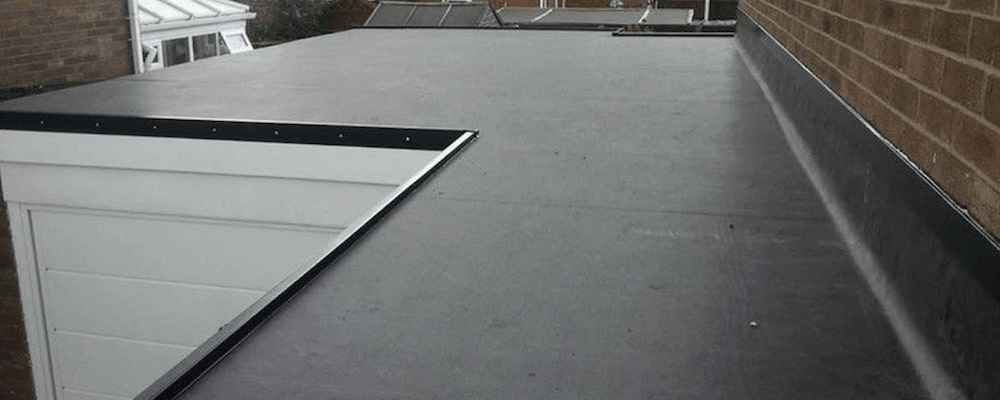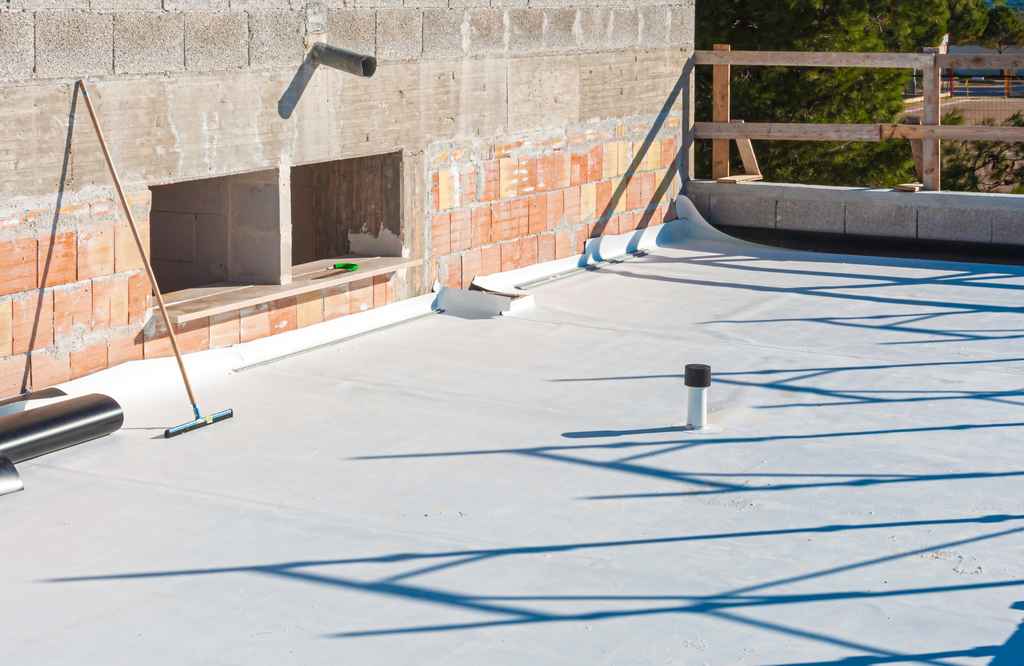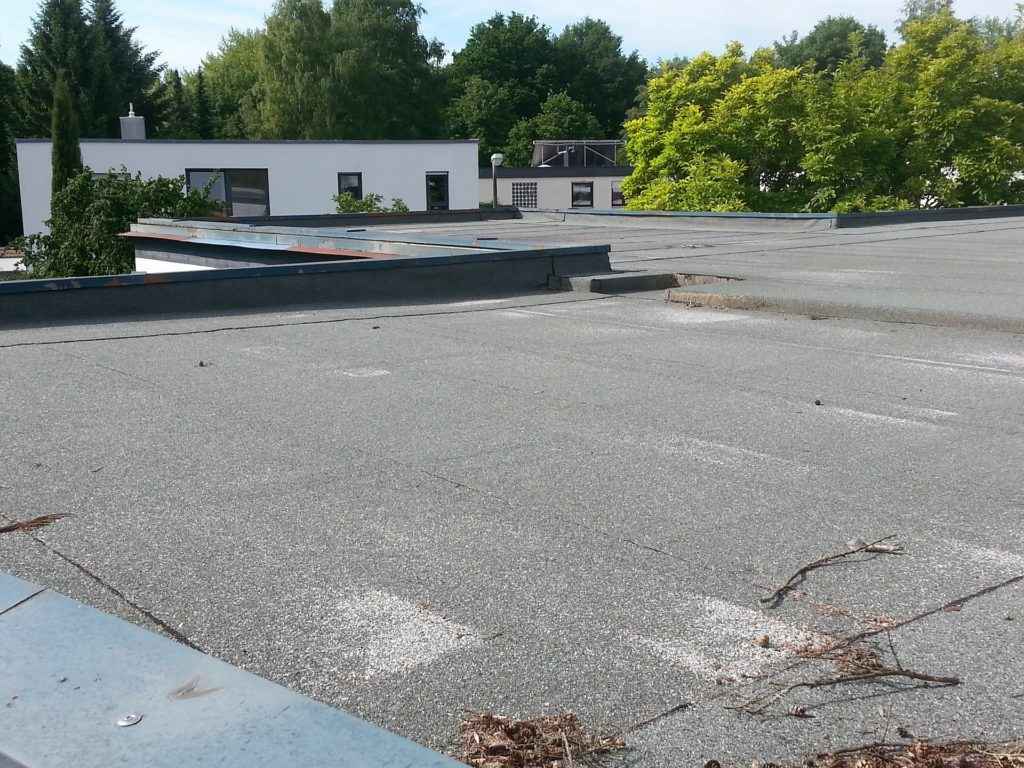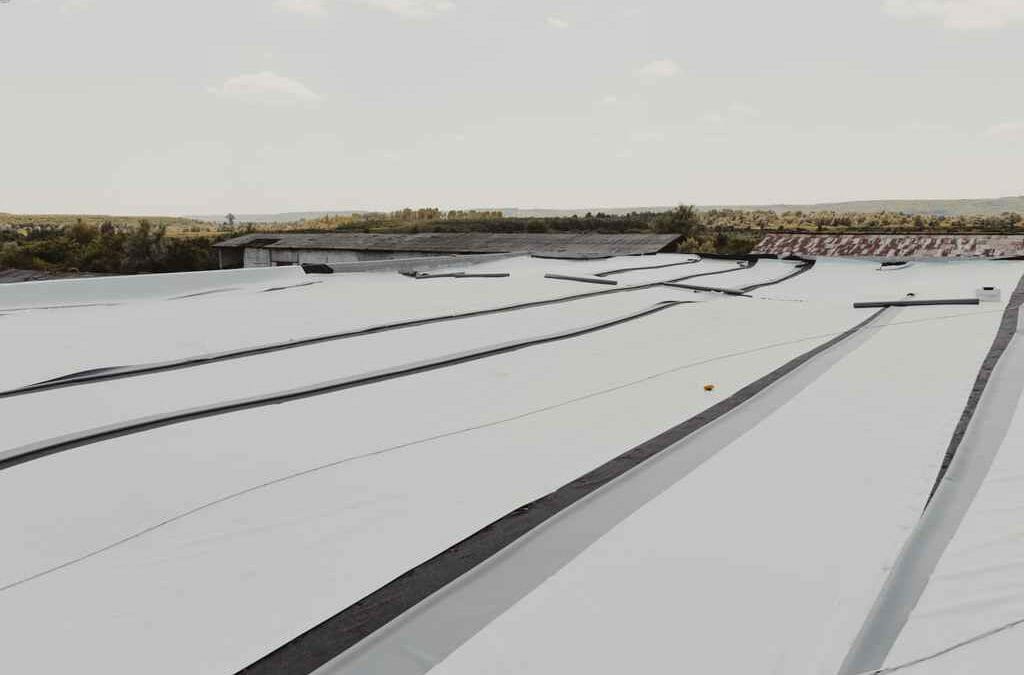
Image via fixr.com
EPDM
EPDM, commonly known as a “rubber roof” or ethylene propylene diene monomer, gets its name from the chemicals mixed in various proportions to form it. It’s manufactured in large sheets or rolls and is quick and easy to install, on top of being one of the most inexpensive roofing materials around. EPDM roofing membrane is very lightweight, so the roof deck will not need any reinforcement. And because there are few seams, leaks are rare and a good quality EPDM can last for decades.
Pros
EPDM generally comes in at the lowest price per square foot for flat or low-sloped roofs. Generally, it is long-lasting with a lifespan of over 20 years, and it can be a very energy-efficient roof choice.
Cons
Ballasted EPDM systems are relatively inexpensive when compared to others, however fully adhered or mechanical systems are slightly more expensive than TPO. In the wrong environment and toward the end of its life, EPDM can start to become fragile. Additionally, there is a common thought that the black flat EPDM roofs are not the prettiest sight to look at.

TPO
TPO, Thermoplastic Polyolefin, is made up of a single layer of synthetics, usually a blend of polypropylene and ethylene-propylene rubber. Its primary advantage is that it’s typically the lowest material cost for single-ply membrane roofs. It typically comes in white on top, which can help reflect the sun’s light and stop heat buildup within the building.
TPO can be attached with adhesives, fastened directly to the roof deck, or even heat welded in places around chimneys and other protrusions. It resists corrosion, mildew, and algae growth, and does not require pressure washing, making it even easier to care for during the annual checkup.
Pros
TPO provides outstanding resistance to ozone, ultraviolet rays, and some chemical exposure at a low cost. It reflects heat radiation better than EPDM and resists mold growth, dirt accumulation, tears impacts, and punctures.
Cons
Heat welding the seams requires a very high-quality installation to hold up over time. Some formulations of TPO may not last much past the 10-year mark, and newer technology makes for a lack of a proven track record.

Image via elevationrr.com
Modified Bitumen
Modified bitumen roofing, being asphalt-based, is designed for low-slope roofs. It has been successfully used across the nation for over 40 years. Its unique properties give it many of the benefits of old-fashioned built-up roofing and some of the convenience of today’s single-ply roofing systems. If you are re-roofing a flat roof, mod-bit should be on your list of options.
Pros
A modified bitumen roofing system is one of the most trusted roof systems because of its inherent thickness, on average four times thicker than a standard single-ply thermoplastic roof membrane. With a granulated cap sheet, modified has a better chance of standing up to foot traffic than other systems.
Cons
A modified bitumen roofing membrane may be black in color, or only minimally reflective, which attracts and absorbs heat from the sun—rather than reflecting it away from the building. While recovering an existing modified roof with a single-ply mod-bit cap sheet is very cost-effective, installing more than one ply drives up costs quickly. Multi-ply mod-bit systems are significantly more expensive on large roofs.
Buildings with roofs that tend to hold rainwater or melting snow will become worn sooner when a modified bitumen roofing system is installed. Modified bitumen plies and seams do not handle standing water as well as their thermoplastic counterparts.
At EZ Roof and Construction, we have years of experience in commercial roofing that will ensure you the job is done as intended the first time. If you’re ready to see what your roofing solutions can look like, schedule an estimate with Houston’s trusted roofing company today.

